#cassell's history of england
Text

Richard III at the Battle of Bosworth in Cassell's History of England , Volume 2 (King's ed.)
by Edmund Blair Leighton
#edmund blair leighton#edmund leighton#richard iii#king of england#england#king#kingdom of england#cassell’s history of england#john cassell#cassell’s illustrated history of england#history of england#history#art#illustration#medieval#knights#knight#middle ages#wars of the roses#armour#king richard iii#english#europe#european#cassell and company#woodcut#battle of bosworth#bosworth#field
952 notes
·
View notes
Text
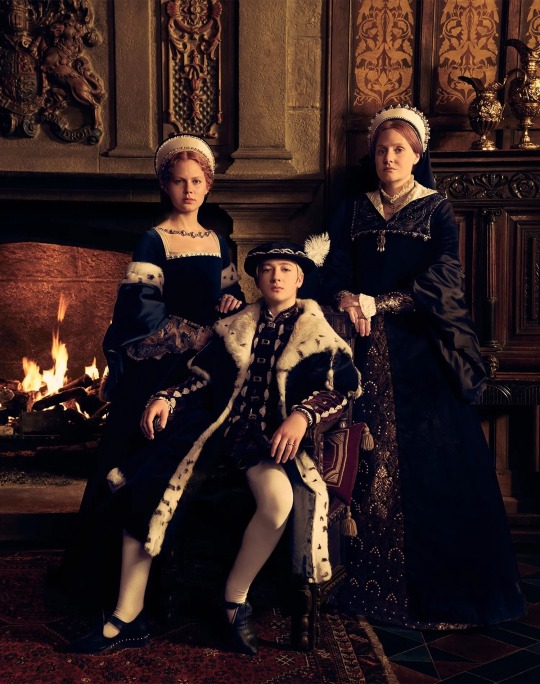
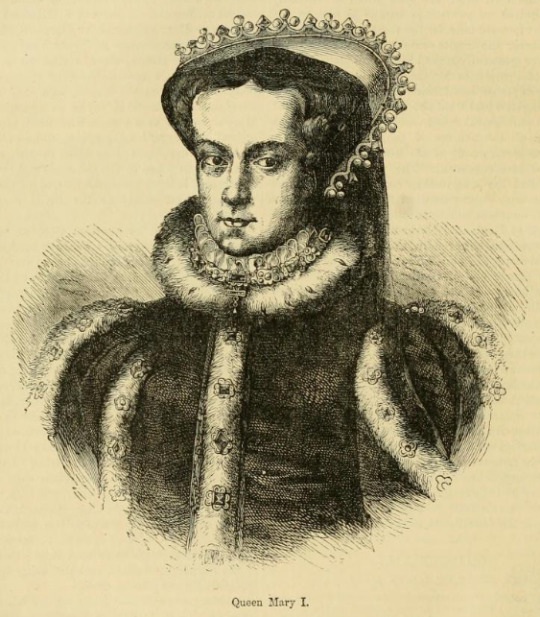
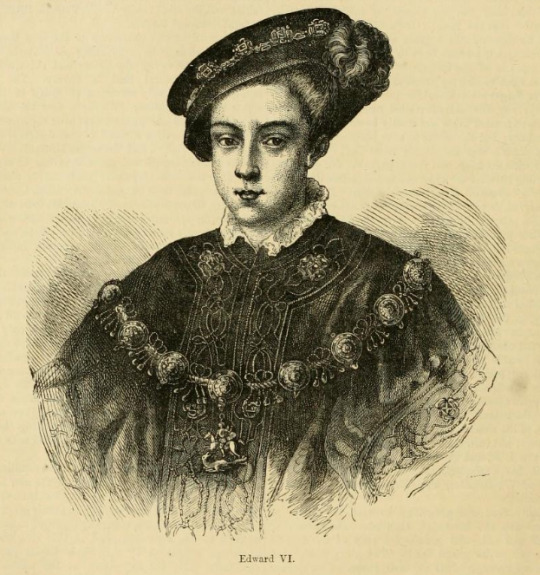


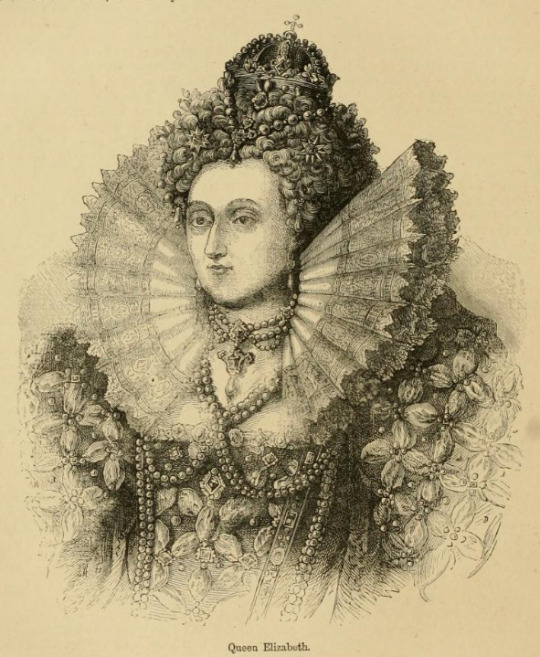
Mary I and her siblings Elizabeth I and Edward VI
"On 21 July[1536], Mary sent a letter to her father [...] she praised 'my sister, Elizabeth' as a 'child toward (forward and clever for her age)' in whom she thought Henry[VIII] would 'rejoice in time coming'" The kings pearl by Melita Thomas.
"Right dear and entirely beloved sister, We greet you well. [...] And thus we pray God to have you in his holy keeping. [...] Your loving sister, Mary the Quene" Mary in a letter to Elizabeth, 26 January 1554.
"Mary received another very sweet letter from [Edward VI] in May 1546. In it, he again apologized for not writing very often, and went on to say that he loved her just as much as if he wrote to her frequently. Although he did not wear his best clothes very often, he loved them most, so, although he rarely wrote to her, he loved her best" The kings pearl by Melita Thomas.
Edward, now twelve, rebuked Mary for hearing Mass in the chapel. [...] He demanded her obedience, she resisted, and both were reduced to tears." Mary Tudor: Princess, Bastard, Queen by Anna Whitelock.
Pictures are stills from the shows The Tudors and Becoming Elizabeth, and drawings from John Cassell's Illustrated History of England, Volume II, 1865
(For foreverinthepagesofhistory's 300 follower challenge day 1)
14 notes
·
View notes
Text
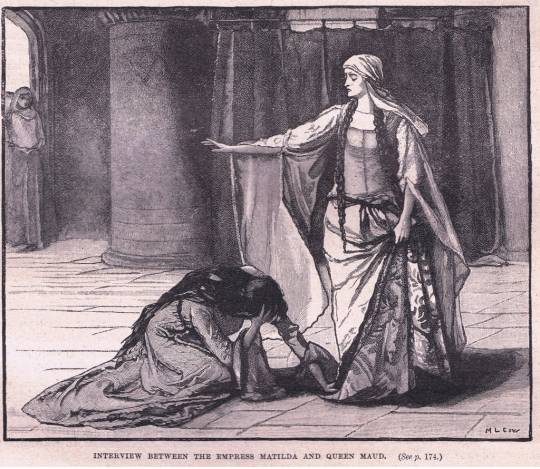
Mary Lightbody Gow - Interview between the Empress Matilda and Queen Maud.
Interview between the Empress Matilda and Queen Maud, illustration from Cassell's Illustrated 'History of England'.
5 notes
·
View notes
Photo
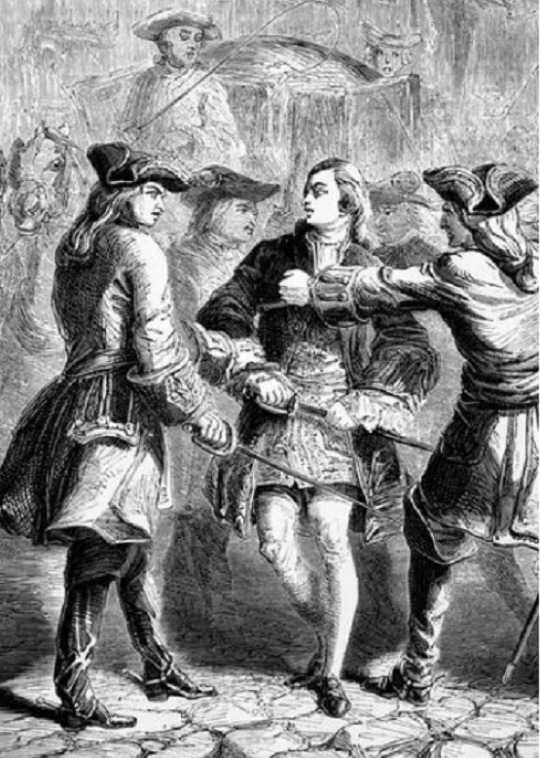
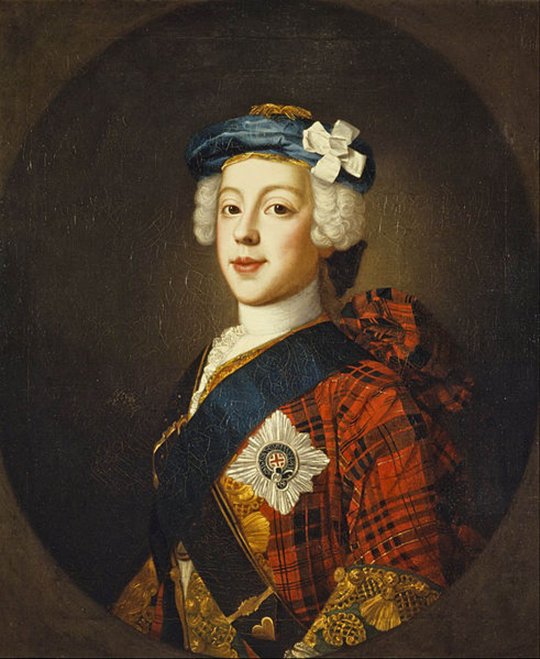
On 11th* December 1748 Charles Edward Stuart was arrested in Paris after failing to leave under the terms of the treaty of Aix-la-Chapelle.
*Other source says 10th
Charlie had returned to France in 1746, he continued to be driven by his dynastic ambitions for a Stuart restoration in the years that followed he faced a series of setbacks and disappointments, the first was in 1647 when Pope Benedict XIV announced his intention to make Charles’s brother, Henry Benedict, a Cardinal – a Prince of the Catholic Church. Charles described this action as being like a dagger to his heart.
Think about the impact of this appointment: hopes of a Stuart restoration to the throne were now irrevocably dashed. Such an overt allegiance to the Catholic Church would make it difficult – if not impossible – for Charles to stake a claim. It became clear that King Louis would not finance another rising so Prince Charles, with his loyal servant, Archie Cameron, rode across the Pyrenees into Spain to try to win King Ferdinand to his cause, this again was unsuccessful.
Returning to France he was joined by his wife Jean, who had suffered badly during his absence, losing two of their children from exposure as they hid in caves and on the hills. The consolation was the king of France continued, however, to accord his visitor ‘moral support’, this was however about to change.
The dates differ slightly on this next setback, in December 1748 in accordance with the treaty of Aix-la-Chapelle, Charles was requested to leave France. Charles was told to leave forthwith for the Swiss city of Fribourg, a retreat Louis had arranged for him; but he refused to be dictated to and paraded around Paris as if he “owned the city and all of France.” He was warned that he would be arrested and bodily thrown out if necessary, but he still believed he could bluff out of existence in France.
One source tells us that things came to a head mid December when…….
“………Charles arrived by coach at the opera house. The footman who opened the doors was swiftly brushed aside by armed guards. Upon orders from his most Christian Majesty, the Prince was arrested, trussed hand and foot, and carried off to the person in Vincennes, where he was to remain until his senses were restored. On December 12th, Charles finely made his submission to the King of France by letter. After a grovelling preamble about his undying devotion to Louis’s sacred person, the Prince said he was ready to leave France as commanded. He was released with money and an escort and order to Avignon.”
An objection was raised by the English government to his stay in this city, and Charles departed of his own accord, early 1749 he was given a residence by the Pope.
For the next few years his movements are wrapped in mystery, which recent investigation has only partially unveiled. For some time he was living secretly in Paris, though not unknown to the French government, with his mistress, Clementina Walkenshaw, who had joined him soon after his return from Scotland.
It is certain that he was in London in 1750, and that at this time he declared himself a protestant, under the idea that by so doing he would greatly improve his chance of obtaining the English crown.
There is also evidence he was in London in 1752 and 1754 to rouse the English Jacobites into action, but without success.
In 1766 James VIII and III died in Rome; his son would ‘inherit’ the right to become Charles III, but this required recognition from the Pope and Europe’s Catholic monarchs, to me this was the final nail in the coffin, this recognition was not forthcoming.
By the time of Prince Charles’s death in 1788 he had been reunited with his only daughter, Charlotte and she took care of her father in his final, ailing years.
Pics are of the Prince, the drawing is “ Arrest of the Young Pretender in Paris,” illustration from 'John Cassell's Illustrated History of England', c.1858 (engraving)
27 notes
·
View notes
Text
June 21st, 1529: Catherine of Aragon’s Speech at Blackfriars as Depicted in Art:

Trial of Catherine of Aragon by Frank O. Salisbury (1906)
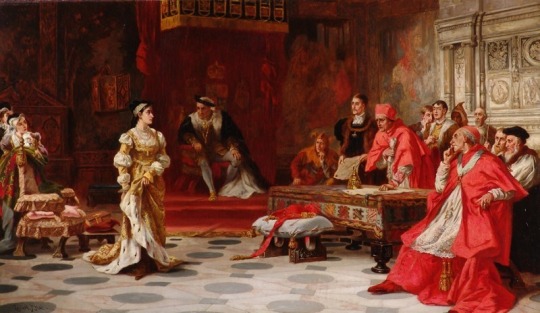
Katherine of Aragon Denounced Before King Henry VIII and His Council By Laslett John Potts (1837)
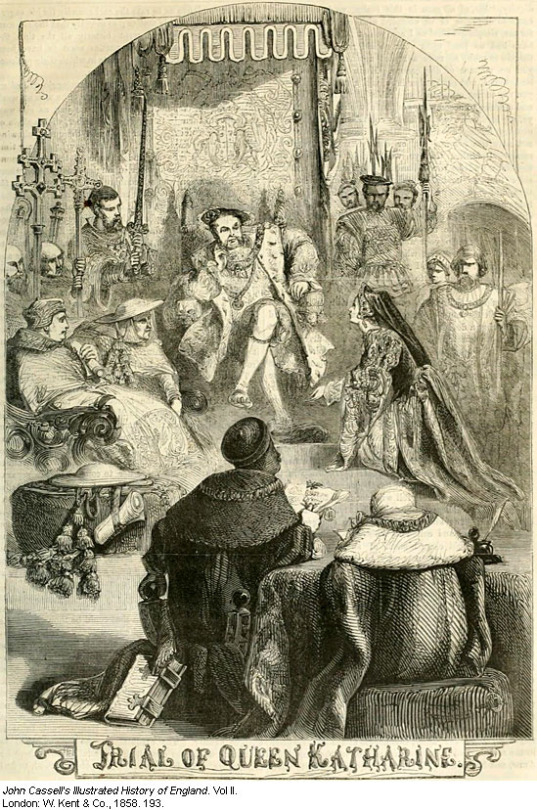
Trial of Queen Katherine from John Cassell’s Illustrated History of England Volume 2 (1858)

Wood Carving of the Trial of Catherine of Aragon

The Trial of Catherine of Aragon by George Henry Harlow (1817)
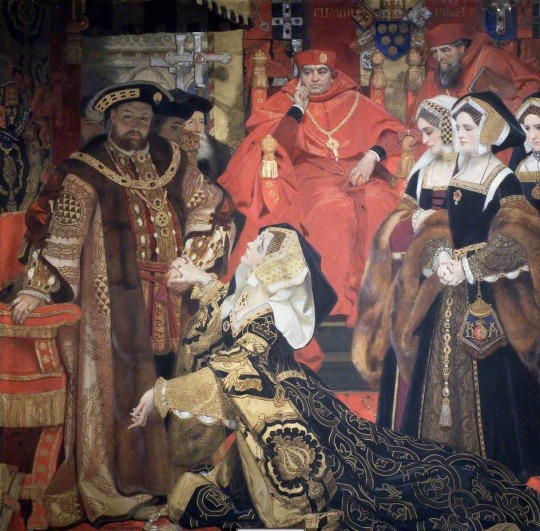
Henry VIII and Catherine of Aragon before Papal Legates at Blackfriars by Frank O. Salisbury
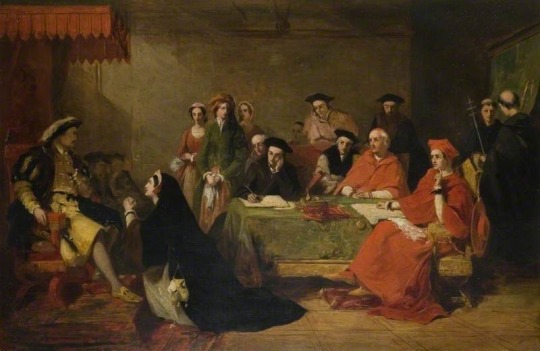
Trial of Queen Catherine of Aragon by Henry Nelson O’Neil (1846/8)

Catherine Of Aragon Kneeling Before Her Husband King Henry VIII Of England At The Trial Of Their Marriage From The National And Domestic History Of England By William Aubrey (1890)
#catherine of aragon#katherine of aragon#katharine of aragon#catalina de aragon#the tudors#henry viii#tudor history#english history#tudor era#art#victorian period#victorian painting#victorian art#tudor dynasty#the tudor period#the tudor era#the tudor dynasty#tudor#house of tudor#on this day in history#the six wives of henry viii#king henry viii#henry tudor#shakespeare’s henry viii#william shakespeare#shakespeare#cardinal wolsey#thomas wolsey#history#engraving
42 notes
·
View notes
Text
THIS DAY IN GAY HISTORY
based on: The White Crane Institute's 'Gay Wisdom', Gay Birthdays, Gay For Today, Famous GLBT, glbt-Gay Encylopedia, Today in Gay History, Wikipedia, and more …


1372 — England: King Edward II is killed. The King was rumored to have had an affair with Hugh Despenser. Edward also had a close and controversial relationship with Piers Gaveston who had joined his household in 1300. The precise nature of Edward and Gaveston’s relationship is uncertain; they may have been friends, lovers or sworn brothers.


1640 – Philippe I, Duc d'Orléans (d.1701) was the second son of Louis XIII of France and Anne of Austria, and thus the younger brother of Louis XIV of France. He was known as Monsieur at the French court, Monsieur becoming the traditional name of the King's eldest brother from 1660. He was born at St Germain-en-Laye.
In 1661, he was made Duke of Orléans, and married his first cousin Henrietta Anne Stuart, sister of Charles II of England, also known as 'Minette'.
Traditionally, in the French court, a king's younger son was not given significant responsibility, and Philippe was no exception. His mother discouraged him from traditionally male pursuits such as arms and politics, and encouraged him to wear dresses, make-up, and to enjoy traditionally feminine pursuits. This was part of Queen Anne's effort to distract Philippe from challenging his older brother's rule and position.
As an adult, Monsieur continued to enjoy wearing feminine clothing and fragrances, but also proved to be a brave and competent commander in the field. He fought with distinction in the 1667 promenade militaire against Flanders during the War of Devolution, though he hastened back to his life at court immediately after victory was assured. Monsieur resumed military command in 1672, and in 1677 won a great victory at the Battle of Cassel and took St Omer. Louis XIV, it was said, was jealous of his brother's success, therefore Monsieur never commanded an army again.
Monsieur's favorites, invariably handsome young men, dominated contemporary and historical commentary about his role at court, particularly one man who shared his princely rank and much of his life: Philip of Lorraine-Armagnac was three years younger than Philip of Orléans. Handsome, brutal and devoid of scruples, he was the great love of Monsieur's life. He was also the worst enemy of Monsieur's two wives...
As greedy as a vulture, this cadet of the French branch of the house of Lorraine had, by the end of the 1650s, hooked Monsieur as though harpooning a whale. The young prince loved him with a passion that worried Madame Henrietta and the court bishop, Cosnac, but the King understood that, thanks to the attractive face and sharp mind of the good-looking cavalier, he would have his way with his brother.
Under these circumstances it is no surprise that Monsieur's first marriage was unhappy. In January 1670 his wife prevailed upon the King to imprison the chevalier, first near Lyon, then in the Chateau d'If, and finally banish him to Rome. But by February Monsieur's protests and pleas persuaded the King to restore him to his brother's entourage. The death of the Duchess in the following June was popularly attributed to poison.
His second arranged marriage was to 'Liselotte' Elisabeth Charlotte, daughter of Charles Louis, Elector Palatine of the Rhine Whereas Monsieur's first wife had been known for beauty, charm and wit, no one accused Liselotte of those graces, and some said that this lack explained why she fared better with Monsieur than did his first wife. She gave him his only surviving son. She also became known for her brusque candour, upright character, lack of vanity, and prolific foreign correspondence about the daily routine and frequent scandals of Versailles.
Monsieur failed to stand up to Louis XIV's insistence on marrying his daughter Françoise Marie Monsieur's son and heir, Philippe d'Orléans. But when, years later, the King rebuked him for his son's indifference toward her, Monsieur defended his son with such vehemence that a footman felt obliged to enter the King's chamber to warn the royal brothers that their argument was being overheard by the entire court. Monsieur is the only man known to have raised his voice to the adult Louis XIV— though he did not live to see the King again.
Monsieur was an art collector and perhaps also a shrewd investor. Monsieur enjoyed court life, gambling, chasing young men, and ceremony. Despite the fact that his debts and dalliances often cost the King, the brothers spent much time together. Orléans' loyalty was never in question; but his unabashed effeminacy probably deprived him of the credit he deserved among his countrymen and in history. Louis XIV, however, seems to have fully appreciated their relationship, as he treated Monsieur, publicly and privately, with respect and leniency.
He died at Saint-Cloud in 1701 of an apoplectic fit brought on by his heated argument with the King.

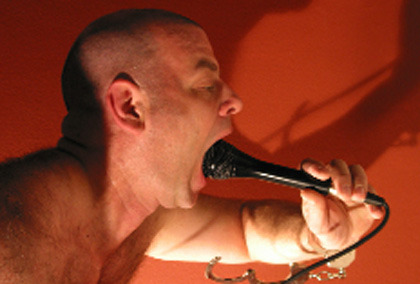
1968 – John Patrick Kamys, born in Chicago, IL, and better known by his stage name Jinx Titanic is an American composer, singer, songwriter, recording artist, and author, best known for his outrageous stage persona, and image as the beer-swilling, cigar-smoking, sexually-candid, lead singer of the eponymous rock band. Occasionally he will appear as a stage actor, movie actor, comedian, television personality, or host, and is also considered a notable member of the Queercore and Homocore movements.
Before taking on the persona and public life of Jinx Titanic, Kamys worked regularly in Chicago as a composer and songwriter. His first score for theater was written in 1994 for Teatro Vista's production of Romulus Linney's play Ambrosio.
In 1999, he also wrote and played the lead (Logan John) in the alt-country/Americana musical Future City Homosexual Tells All "about a small town boy trying to do the big town thing." at The Theater Building in Chicago.
Jinx Titanic, was born in May 2002 at a recording session at Chicago's Rax Trax Studios. Kamys had assembled four musicians to record under the band name Super 8 Cum Shot. He described the band as a "good-natured, bawdy and unforgettable punk/party/porno/pop experience," and dubbed its members, "the beer-swilling ambassadors of the orgasm." In keeping with the spirit of the band, each member was asked to choose a pseudonym. Kamys chose Jinx Titanic for himself. Super 8 Cum Shot Volume I was released July 31, 2002 with a performance and party at the historic Whisky a Go Go in Los Angeles, California. The original members of Super 8 Cum shot, performing on the recording are: John Kamys aka Jinx Titanic vocals, Jeff Kust aka G.I. Tarbaby Barbra guitar, Mitch Marlow aka Machine Gun Garafalo guitar, Chris Sewell aka Dax Malkovich bass, Timothy Ford aka Posey (t-mint) Parker drums.
In January 2005, Titanic, who is openly bisexual, was invited to play the Queer Lounge at the Sundance Film Festival. This event marked the beginning of his affiliation with the Q Television Network, and in June 2005 he began working as a guest host and regular correspondent for the network, continuing to do so until Q Television closed its doors in late 2006. During this period, while retaining a band, Titanic repositioned himself as the solo artist Jinx Titanic.


1983 – Scott Evans is an American actor, best known for his role as the police officer Oliver Fish on the ABC daytime soap opera One Life to Live. He is the younger brother of actor Chris Evans (Johnny Flame in The Fantastic Four; Captain America).
Evans began playing the recurring role of police officer Oliver Fish on One Life to Live on January 15, 2008. He subsequently appeared briefly on Guiding Light as Trey in 2008, and guest-starred as Woody Sage in the June 22, 2008 Law and Order: Criminal Intent episode "Betrayed" as well as the role of Ben in the October 21, 2008 Fringe episode "The Cure." Evans was also seen as Chad the Mail Clerk in the 2009 film Confessions of a Shopaholic.
Initially brought in to One Life to Live for five episodes, Evans returned several times. In July 2009, his character Oliver Fish became involved in a romantic relationship with another man. The storyline came to wider attention when Patricia Mauceri, an actress who had played a recurring role on the One Life to Live since 1995, was replaced after reportedly voicing personal religious objections to her character's involvement in his storyline. The Fish storyline on One Life to Live was canceled and Scott was let go. Evans was later outted as gay by his brother Chris.
Scott said of coming out:
You know, I have to tell you, I don't think I ever really had a thought process about being an out actor. I came out when I was 19-years-old, and then I became an actor. I didn't want to be one of those people who goes back into the closet and tries to hide because I knew it would come out. With the success of my brother, I didn't feel it was necessary to hide it once I'd come out. I'm an out person, as opposed to an out actor, I suppose.

1998 – “Will & Grace,” the first prime-time program to feature openly gay lead characters, premiers.

2003 – Soldier’s Girl, a film based on a true story about solider in love with a transsexual woman, is nominated for an EMMY.

2010 – Dan Savage and husband Terry Miller upload their first It Gets Better video on YouTube, to help prevent suicide among LGBT youth. Dan is an American author, media pundit, journalist, and activist for the LGBT community. He writes Savage Love, an internationally syndicated relationship and sex advice column. He has also worked as a theater director, sometimes credited as Keenan Hollahan.


2 notes
·
View notes
Text
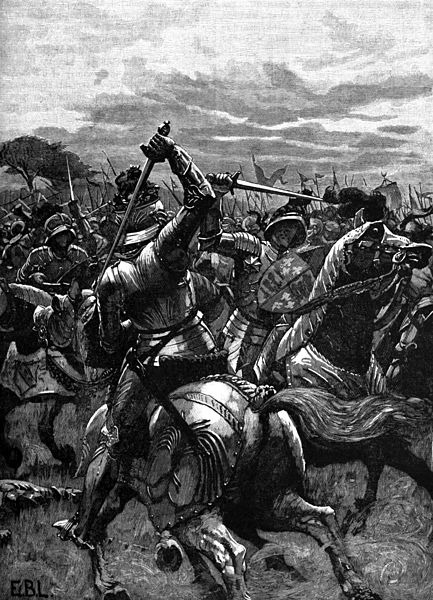
Edmund Bleigh, Leighton (1909) "Richard III at the Battle of Bosworth" in Cassell's History of England, Volume 2 (King's ed.), London, New York, Toronto & Melbourne: Cassell and Company, pp. p. 61 Retrieved on 19 June 2009.
3 notes
·
View notes
Text


















(Inter)National Cake Day
(Inter)National Cake Day takes place on November 26 each year. Cake is a baked food usually made out of flour, sugar, and other ingredients. In their oldest forms, cakes were modifications of bread, a more sophisticated type, but these days, cakes cover a wide range of baked sweets such as pastries, pies, et cetera. Cake is often served on ceremonial occasions, such as weddings, anniversaries, and birthdays. There are numerous cake recipes, many of which are centuries old.
History of (Inter)National Cake Day
Our favorite confection, cake, has a pretty long history. The word ‘cake’ itself is of Viking origin, and is derived from the Old Norse word ‘kaka.’ The Greeks also had their own cake which was baked using flour mixed with other ingredients such as eggs, milk, nuts, and honey. They also had a cake called ‘satura,’ which was flat and had a heavy consistency.
The word “cake’ took on a different name during the period of Roman rule, and that was ‘placenta,’ a Greek dish derived from their term for cake. A placenta was made from many layers of dough and was typically baked on a pastry base or inside a pastry case. The Greeks used beer to leaven it and included in the mixture was cheese made using goat’s milk. The basic bread dough was sometimes enriched with butter, eggs, and honey, as a sophisticated kind of bread that produced a sweet and cake-like baked good. This way of cooking was a common ancient Roman practice.
Early cakes in England also started off as regular bread, with the most obvious difference between them being their shape, that is, the more rounded, flat shape of cakes. Another difference is the method of production, where cakes are turned over while baking, as opposed to bread which was left upright throughout the baking process.
(Inter)National Cake Day timeline
1200 — 1300
The Word ‘Cake’ is Derived
The word ‘cake’ comes from the Old Norse word, ‘kaka.’
1600 — 1700
The Earliest-Known Cakes are Made
According to historians, the earliest form of modern cakes are first made.
1894
An Early Book of Cake Recipes Released
A book titled “The Cassell’s New Universal Cookery Book” is released and it contains several cake recipes.
1929
The First Cake Mix Surfaces
The first cake mix containing flour and other ingredients is first sold.
(Inter)National Cake Day FAQs
What is International Cake Day?
International Cake Day, celebrated on November 26, is also known in the United States as National Cake Day, is an unofficial holiday that celebrates the yummy magic of cake.
Does cake make you happy?
The real question here is, doesn’t it? Cakes are said to contain oxytocin, the “love hormone,” which is responsible for causing happiness in humans.
Should you refrigerate cake?
If you want the best out of your cake, then you should definitely refrigerate it to ensure it lasts as long as possible.
(Inter)National Cake Day Activities
Bake a cake: One of the best ways to celebrate International Cake Day is to bake some cake. There are now so many online recipes that are readily available, so you don’t have to bother finding a cookbook.
Eat some cake: Of course, you should enjoy some cake on International Cake Day. It’d be an absolute shame if you didn’t.
Share the fun online: Whether it’s a recipe you came up with, a video of you making some cake, or a picture of you enjoying a yummy slice, don’t forget to share it on social media. Use the #InternationalCakeDay hashtag.
5 Decadent Facts About Cakes
Cupcakes surfaced in the 19th century: Cupcakes as we know them today were first referred to as cupcakes in the 19th century.
Cakes were once called placentas: Cakes were referred to as placentas during Roman times because of their flat shape.
A world record for eating cupcakes: The world record for eating cupcakes is a staggering 72 cupcakes in six minutes.
Cakes are simply an upgrade from bread: Cakes are pretty much a sophisticated form of bread — the major difference is in the ingredients, method of preparation, and varieties.
Cakes are similar to biscuits: The only difference between both is that cakes harden when stale, while biscuits do the opposite and soften over time.
Why We Love (Inter)National Cake Day
Cakes are delicious: Cakes are very delicious when made properly. Indulge in as many as you desire this International Cake Day.
Cakes literally provide happiness: It’s not a myth. Eating cakes releases oxytocin which is responsible for causing happiness.
Cakes are healthy: Cakes are actually quite healthy when consumed appropriately. This is because they contain a high nutritional value.
Source
#National Cake Day#NationalCakeDay#26 November#travel#Sweden#original photography#Princess cake#Coconut Cake#USA#Canada#Death by Chocolate Pudding Cake#Red Velvet Cheesecake#Uncle's Tetsu Japanese Cheesecake#Reese's Peanut Butter Chocolate Cake Cheesecake#Tartas Ancano#Spain#vacation#Heaven and Hell Pie#Coconut Cream Pie Cheesecake#Gâteau au chocolat#Apricot Cake#Strawberry Pistachio Cake#International Cake Day#Custard Pie
0 notes
Text
THE GREAT PLAGUE AND PLAGUE PITS OF LONDON 1665
‘THE GREAT PLAGUE – SCENES FROM THE STREETS OF LONDON’. FROM CASSELL’S HISTORY OF ENGLAND VOL.III (1905)
‘May 29th 1666. Spent on the City Marshall at ye shutting up of a visited house . . Is.0d.’
Plague had always stalked England throughout the centuries with regular outbreaks such as the one known as the Black Death in the 14th century which brought death on such a scale that whole villages…
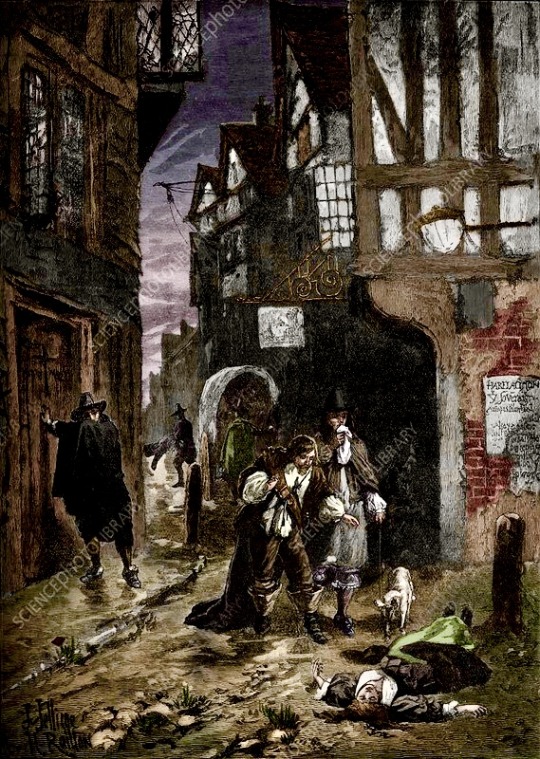
View On WordPress
0 notes
Text
With Mac Jones Making Debut, Here is What Pats Rookie QBs Did In First NFL Motion -- All The Approach Again To Tom Brady
With Mac Jones Making Debut, Here is What Pats Rookie QBs Did In First NFL Motion — All The Approach Again To Tom Brady
By Michael Hurley, CBS Boston
BOSTON (CBS) — We’re getting dangerously near Mac Jones shedding his No. 50 jersey and sliding on (presumably) his comfy No. 10, as he and the Patriots will host the Washington Soccer Crew on Thursday night time at Gillette Stadium.
Contemplating each cross, hand-off, cadence, smile, fist-bump and some other signal of emotion has been documented and analyzed intently…

View On WordPress
#bill belichick#danny etling#debut#history#jarrett stidham#jimmy garoppolo#kevin o&039;connell#mac jones#matt cassel#michael hurley#new england patriots#patriots#preseason#qb#rohan davey#Sports#sports news#stats#syndicated local#syndicated sports#tom brady#tom brady nfl
0 notes
Text
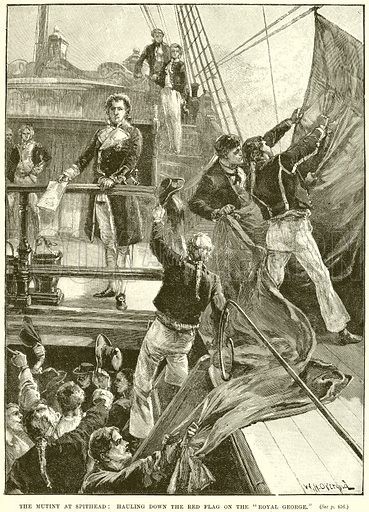
The Mutiny at Spithead: Hauling down the Red Flag on the "Royal George". Illustration from Cassell's History of England (special edition, AW Cowan, c 1890)
The Spithead and Nore mutinies of 1797 were not actually mutinies but rather a strike that lasted four weeks. The main issues to be negotiated with the Admiralty were better pay, the abolition of a levy on the purser ("purser's pound") and the replacement of some unpopular officers. Neither flogging nor pressing was brought up. The mutineers maintained their daily navy routine and discipline on their ships (mostly with their regular officers) and also allowed some ships to leave the Spithead to go on patrol, for example.
As a result of these negotiations, the worst abuses in the Royal Navy, such as bad food, brutally enforced discipline and withholding of pay, were alleviated or abolished. And an increase in pay was introduced.
66 notes
·
View notes
Text
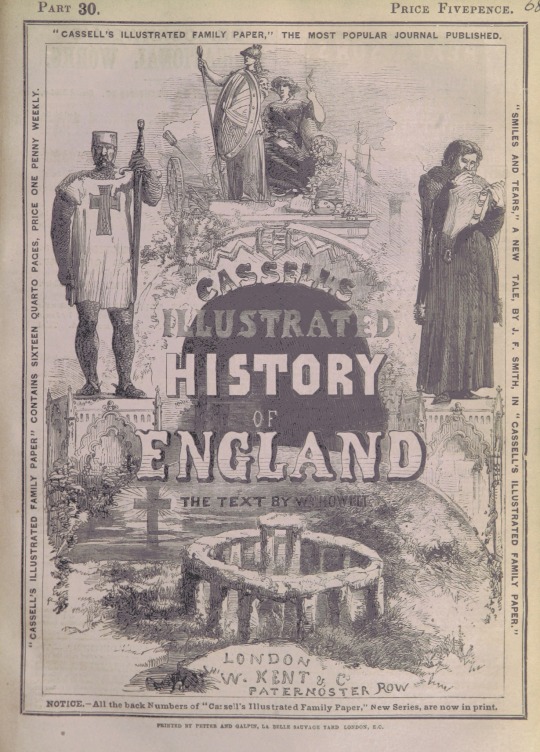
John Cassell's Illustrated History of England
9 notes
·
View notes
Photo
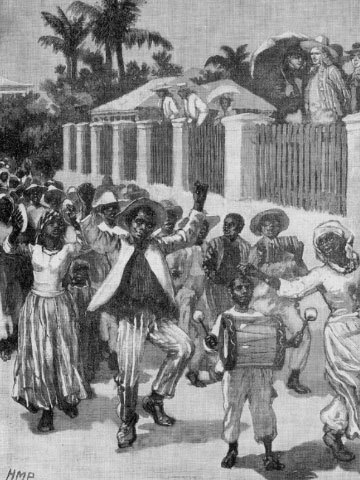
Emancipation festival, Barbados, 19th c. [Cassell’s History of England (1886-95), vol. 5, p. 369]
#Barbados#Emancipation#enslaved#slavery#freedom#history#historical#freedmen#juneteenth#black history#african history#celebration#slaves#the islands#book illustration
1K notes
·
View notes
Text
The Treaty of Basle
By the opening months of 1795, France had control of Belgium, Luxembourg, and the left (west) bank of the Rhine, which had now become integral parts of the French Republic. The spring campaign brought new victories to the French arms as an invasion across the Pyrénées and victories in the Rhineland caused the First Coalition to crumble. Tuscany withdrew its unofficial support, and it was quickly followed by the new Batavian (Dutch) Republic in May. On July 22, 1795, Spain, which two years earlier had declared war on revolutionary France to stave off the threatening ideology of liberty, equality and fraternity, was forced to sue for peace after continued military setbacks. Peace offered a poor alternative for Spain given that Britain now targeted Spanish shipping, which compelled Madrid to sign a treaty of alliance with France, bringing Spain into the war against England. Thus, within a year of signing a peace with France, Spain found itself once more at war, with Britain blockading Spanish ports and attacking the Spanish arsenal at Ferrol.
Equally critical was France's sucess with Prussia, which had hinted at its withdrawal from war in 1794. During negotiations held in the Swiss city of Basle, Prussian diplomats were left in no doubt of French determination to carry on the war - "We shall trace with a sure hand the natural limits of the Republic. We shall make sure of the rivers which, after watering several of our departments, take their course toward the sea, and limit the countries now subject to our arms," declared one French delegate- but were more concerned about the events in the East, where Russia was preparing for the final partitioning of Poland. According to the terms of the Treaty of Basle, signed on April 5, 1795, Prussia withdrew from war and recognized French control of the left bank of the Rhine, while France returned all of the lands east of the Rhine captured during the war.
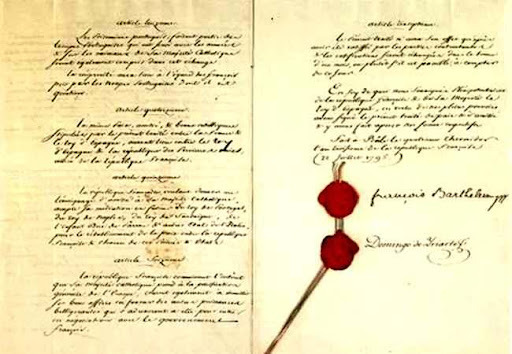
The Treaty of Basle marked a crucial moment in German history and was, at least according to one historian, a "death certificate" of the Holy Roman Empire, since Prussia "rejected Reich [empire] in favor of raison d'état." The treaty not only consolidated French control of the Rhineland but divided Germany into two spheres of influence, drawing a virtual line at the Main River, north of which the German States- Hesse-Cassel, Nassau, and the states of the Swabian Circle (Reichkreis)- soon followed Prussia in deserting the imperial cause and accepting neutrality agreements with France. The treaty aroused loud criticism in Germany, and anti-Prussian attitudes were felt very deeply in many southern German states, helping shape their policies in the decades ahead.
Alexander Mikaberidze - The Napoleonic Wars, A Global History.
#wars of the revolution#alexander mikaberidze#the napoleonic wars: a global history#treaty of bâle#first coalition#impact on german states
13 notes
·
View notes
Photo
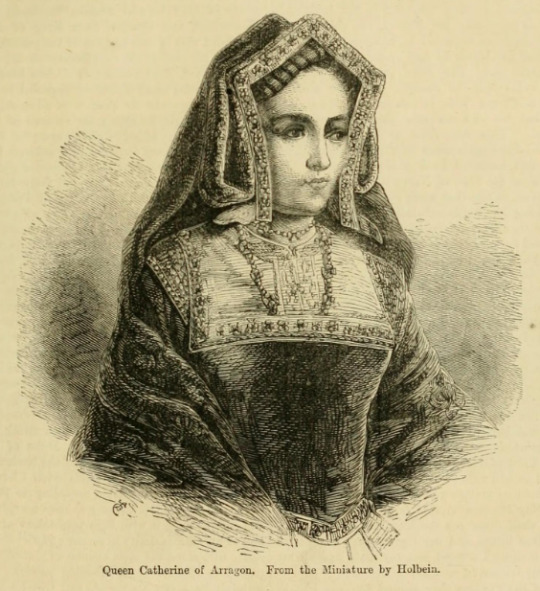
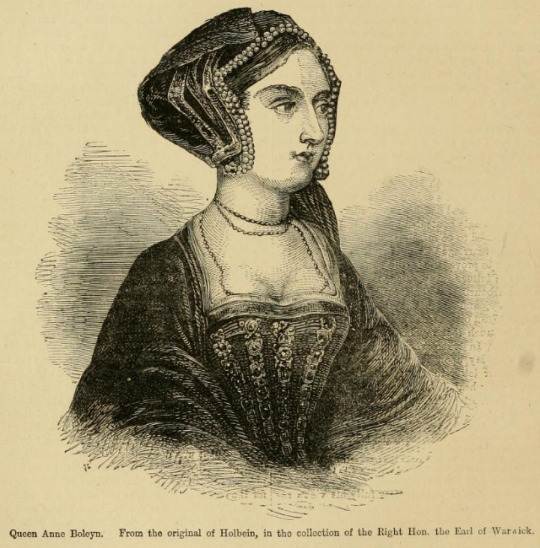
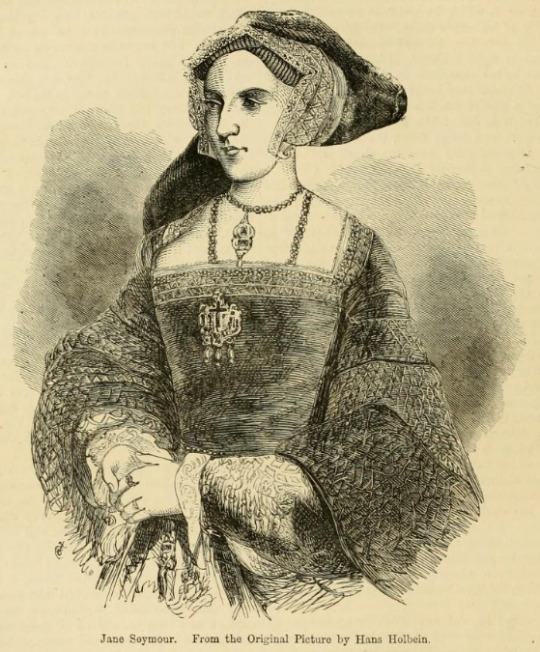
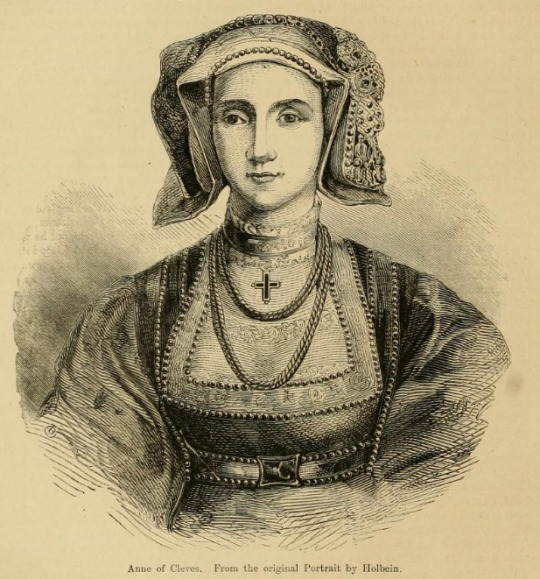
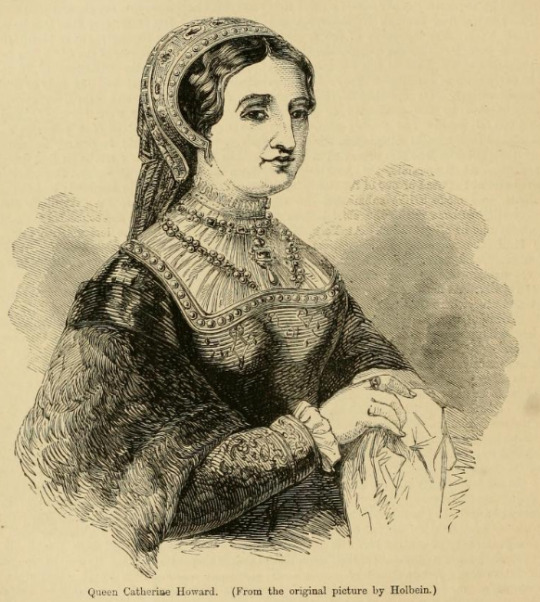
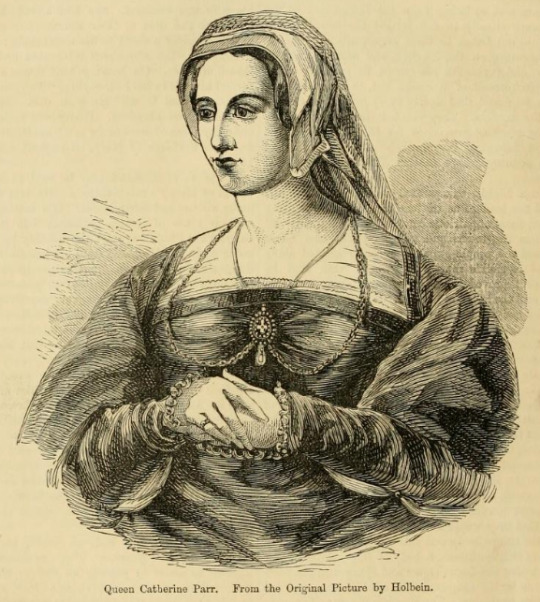
The Six Wives of Henry VIII, depicted in John Cassell's Illustrated History of England, Volume II, 1865
Catherine of Aragon 1509 - 1533
Anne Boleyn 1533 - 1536
Jane Seymour 1536 - 1537
Anne of Cleves 1540 - 1540
Catherine Howard 1540 - 1542
Catherine Parr 1543 - 1547
#catherine of aragon#anne boleyn#jane seymour#anne of cleves#catherine howard#catherine parr#they really did catherine howard dirty she looks the oldest!
246 notes
·
View notes
Text
XVII-XVIII Century Royal Queer History
Unexpectedly to myself, I got really engaged in history of Europe of XVI-XVII centuries. I never really had much interest in kings and queens and didn't know much about them but once I began to read and learn about their personal lives, I got kinda hooked. Also, I was struck by how many of them were queer and I began to write down my findings, which inevitably turned into a freaking study. I thought I might as well post it.

I'm gonna start with King James I of England who ruled in XVII century. Now there are several tumblr posts about this queer legend. Some historians think he was weak and unremarkable but he survived several assassination attempts, kept his power over 3 countries and lived to old age, which is pretty remarkable on its own. He also kept all the religious leaders at bay and commissioned the world's most famous Bible, which is still owned by most Christians 400 years later. He was also the one who created the modern wedding ritual. You know, church, vows, rings, that stuff. He avoided wars and was a patron of the arts, even wrote some books, including one about demons, werewolves and vampires. What a nerd. He was very different from Elizabeth who preceded him, so one contemporary epigram stated "Elizabeth was King, now James is Queen". Oh, also he was very gay. Or, at least, as gay as a king can get. His relationships with his male courtiers were notorious. He had several favourites who had way too much influence over him and his court really hated it.
He needs to have a movie made about him, seriously. I found only one semi-documentary film and it was The King James Bible: The Book That Changed The World (2011). While I liked the film and King James was hot, sassy and very cool, it was disappointing he was shown as perfectly straight. They could just avoid his personal life altogether, but instead they chose to show him being a perfect husband. While it is true that he was nice to his bride, by the time he met her he had a 10-year old relationship with a man 24 years his senior (since he was 14).
I'm just gonna use this screenshot from the movie instead of a painting because it's too good.
Perhaps the most notorious of his alleged lovers was George Villiers, 1st Duke of Buckingham. Starting out as a son of a minor gentleman, the 21-year old lad caught the eye of King James I and quickly became his favourite teasing him by dancing in intricate performances called masques. He made a brilliant career becoming a knight, an earl, a Marquess, and finally a duke - a title normally being reserved for members of the royal family - within just 9 years. Can you blame him though? I mean, look at that stud.
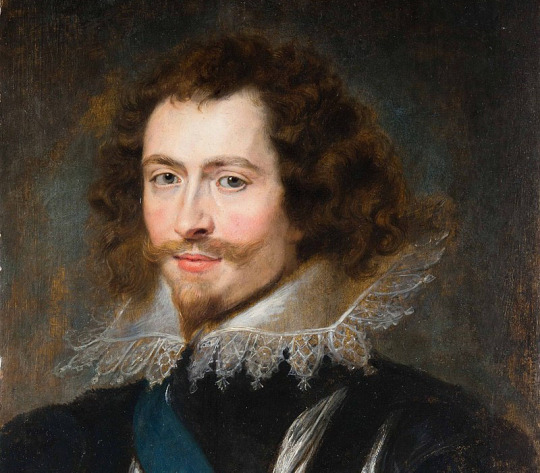
Btw, James’ pet name for Buckingham was ‘Steenie’, derived from St. Stephen who reportedly had the face of an angel.
The name Buckingham seemed oddly familiar to me but it took some time before I realized he was one of the characters in Dumas's "The Three Musketeers". Now I am someone who grew up on old pure Three Musketeers movies so when I started learning about the real historical figures involved in it it gave me a slight shock as the truth is way more weird and sinister that fiction.
The storyline I remember the most was the one where Anne of Austria, the queen of France, got in trouble with her husband Louis XIII because of her affair with Duke of Buckingham. Of course, Duke of Buckingham was never the Queen's lover, he was the King's. What's more, some historians assume Louis XIII was also queer. There is no evidence that Louis kept mistresses, but he had very intimate relationships with his favourites. He has even been described as “repelled by female contact”. There's also the issue of him struggling to have an heir. His wife had 4 pregnancies that were unsuccessful but that seemed like too few for a king who needed to secure his dynasty. After 23 years of trying, the king and queen were finally able to produce a son and another soon followed, the older son to become Louis XIV, and the younger, Philippe, to be known as Duke of Orleans.
Anne was quite the character for a dramatic story too. After Louis's death she became the Regent and made sure to clear the way for her son Louis. To ensure that Louis's younger brother will not try to usurp the power from him as it was with Louis XIII 's brother, Anne of Austria conducted an early and very wicked gender development experiment. She and her adviser, Cardinal Mazarin, set up a plan to raise the two boys very differently. Queen Anne called Philippe by such nicknames as "my little girl" and encouraged him to dress in feminine clothing, which he sometimes did even as an adult.
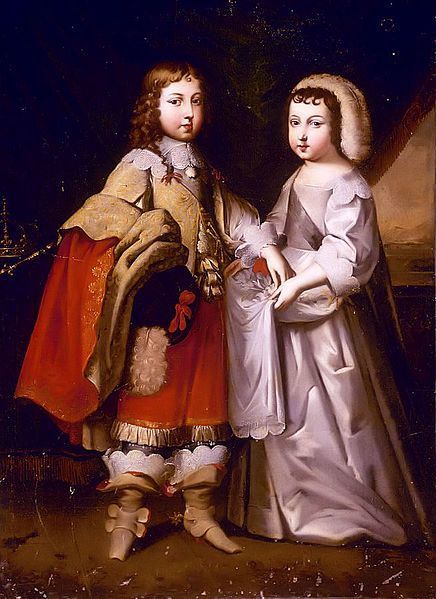
I'm just gonna use this quote because this shit is real:
The queen and Mazarin discouraged the duc d'Anjou [Philippe] from traditional manly pursuits such as arms and politics, and encouraged him to wear dresses, makeup, and to enjoy feminine behaviour. His inclination toward homosexuality was not discouraged, with the hope of reducing any threat he may have posed to his older brother. Reportedly, Cardinal Mazarin even commanded his nephew, Philippe, to de-flower the king's younger brother.
Well, fuck. The joke's on them though, as Philippe grew up to be a fashion icon AND a fierce warrior. He participated in many battles and was immensely praised for his bravery and valour. In 1677, he led the French forces at the Battle of Cassel against William III of Orange of the Netherlands. Yes, that guy who later gently invaded England and took the throne. By the way, there are some allegations that he was also gay. Anyway, Philippe was so badass in battle that people glorified him as a hero and it made his stallion of a brother so jealous he sent him back and never allowed him on the battlefield again.
Louis XIV continued his mother's effort in encouraging his brother's effeminate behaviour and putting up with his homosexual relationships, all the while waging a war of homosexuality in France. I mean, gotta preserve the traditional values, such as fucking 12 mistresses who were often married. There were even rumours Louis fucked Philippe's wife. I guess he was trying to make up for his father, brother, son, and uncle, César de Vendôme.
Meanwhile, Philippe gave no fucks. He had a number of favourites and didn't even try to hide his sexuality. In fact, it is said that every time Louis pissed him off, Philippe did something extra gay and in his face. Fierce.
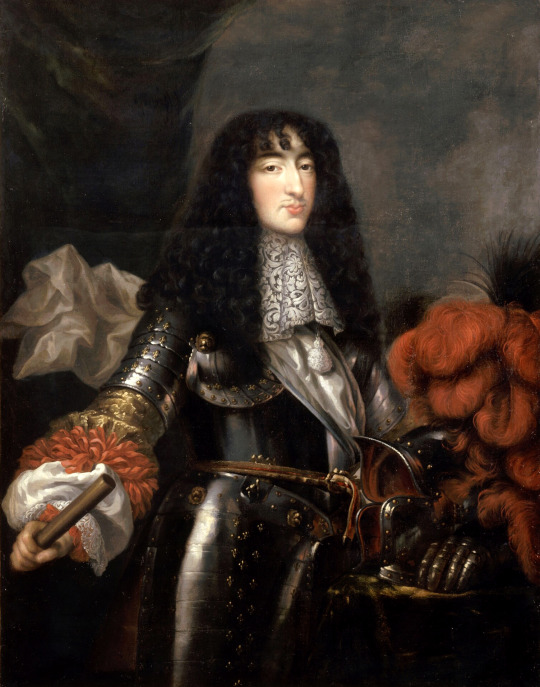
One guy I have to mention is Armand, the Comte de Guiche, who was said to be handsome, vain, and manipulative. Armand was Philippe’s lover, but he is widely thought to have been his wife Henrietta’s lover as well. That apparently wasn’t enough for the guy, because in 1665 he also tried to romance Louise de La Valliere, who was Louis’ chief mistress at the time. Louis exiled him in 1662 for plotting with Henrietta to break up Louis and Louise. What a glorious fucker.
But the love of Philippe's life was Chevalier de Lorraine who was basically a prince of a realm outside France. He's usually called 'Chevallier' but his name was also Philippe. He also had an older brother named Louis. Seriously, couldn't they try a little harder with the names? Anyway, when they met Philippe was 18 and Chevalier 15 and sparks flew. He was described as being “as beautiful as an angel” and was more than ready to use what his mama gave him. He was smart and very manipulative and Philippe showered him with gifts all his life, much to the chagrin of his two wives whose money and estates he often gave away.
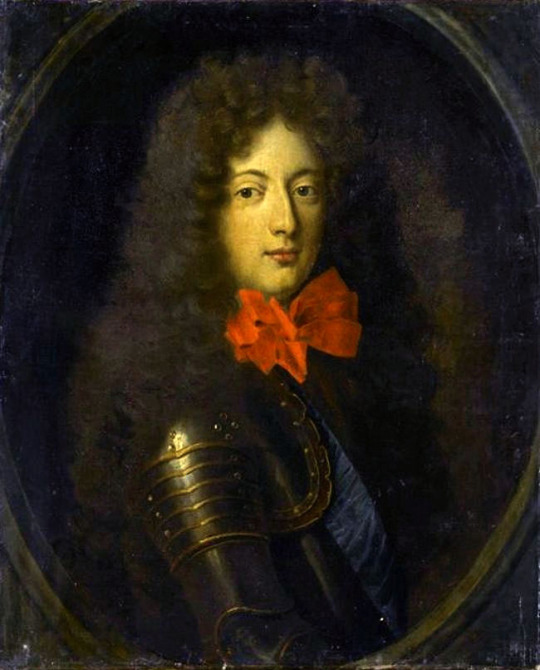
He moved to Palais-Royal, the same palace as Philippe and his wife Henriette. Very convenient. Philippe's marriage got kinda crowded. Chevalier got so arrogant, he actually told Philippe's wife she needs his permission to sleep with him and that he could get him to divorce her. She complained to the king and he got Chevalier imprisoned and exiled. However, not for long as Philippe pleaded the king to pardon him and eventually succeeded. Henriette did not get much relief apparently as she wrote: “I see from the ashes of Monsieur’s love for the Chevalier, as from the dragon’s teeth, a whole brood of fresh favourites are likely to spring up to vex me.” Of course, Chevalier also managed to enrich himself immensely by getting Philippe and the king to give him and his family tons of perks, such as make him the titular Abbot of four abbeys, which payed handsomely.
Henriette died very suddenly claiming she was poisoned. The doctors found no evidence of that, but there were still rumours that Chevalier was to blame. Philippe had to find another wife, even if he wasn't happy about it. Chevalier stuck around. He was exiled a second time after he apparently seduced the king's son (more on that later) but was able to return again. Their relationship lasted for 40 years, until Philippe's death.
There was a recent TV show called Versailles that depicts Louis XIV’s reign and it has a fairly accurate though romanticized portrayal of Philippe and Chevalier's relationship. Too bad the show is way too violent for me to watch. They look stunning in it~
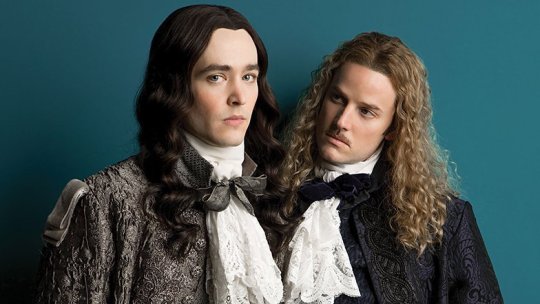
Anyway, such relationships were far from rare. In fact, apparently there were the so-called confréries (“fraternities”), which were basically gay brotherhoods whose members hung out together and set up orgies. One elite brotherhood was founded between 1680 and 1682. Apart from Chevalier, it included the king Louis XIV's cousin Prince of Conti who was once proclaimed the King of Poland, and Louis's illegitimate son, the comte de Vermandois. The latter was 15 in 1682 when at the court of his uncle Philippe, he met the Chevalier de Lorraine and his sect and apparently got very personally acquainted with Chevalier's younger brother and nephew. When the king learned about it, the group was forcibly dissolved and Vermandois was beaten before the king, exiled from court, and forced into marriage.
Another such group was within the highest ranks of nobility at the court of Philippe II, Duke of Orléans, the son of Philippe and the regent at the time when Louis XV was young. They really didn't bother with names, huh? Anyway, they got involved in a number of scandals, in one of which that happened in 1722 a group of 17 noble men gathered in the palace gardens to fuck. The Regent didn't seem very bothered and even seemed to find it amusing.
The Regent, who did not stop smiling, was satisfied that it was necessary to give the nobles a harsh reprimand and tell them that they do not have the best taste [goût] in the world.
Dad would be proud.
There were also some (presumably) queer queens, like Queen Anne of England. Now you might have seen the movie The Favourite but it's heavily satirized and Anne wasn't really childlike and helpless. Actually, this image was created by Sarah Churchill, Duchess of Marlborough, after she was expelled by Anne, and stuck. However, the rivalry between the old and new favourites was very real.
Anne met Sarah when she was just 8. Sarah was beautiful, charming and very persuasive. When Anne became the queen, she made Sarah Churchill her Mistress of the Robes (the highest office in the royal court that could be held by a woman) and gave her a bunch of other really cool titles. She also made her husband, John Churchill, a duke. Thus Sarah became the most powerful person in England after the queen and the queen always listened to her advice. However, as years went by, Sarah became increasingly pushy and insensitive, using the queen to get what she wanted.
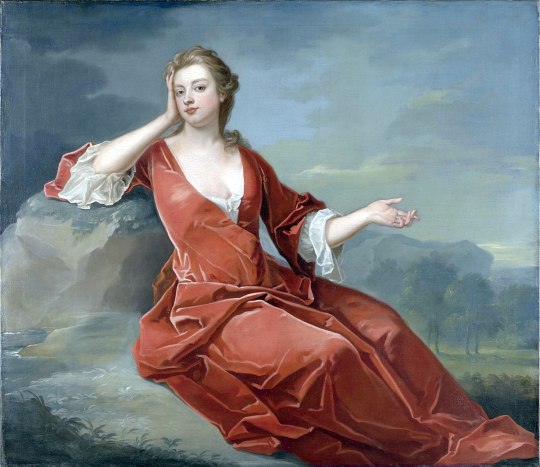
Sarah looking fab~
Then comes Abigail Masham, Sarah's impoverished cousin. Abigail was soft, caring and considerate, exactly what the queen needed. Sarah tried to get rid of her but it only angered the queen further and she eventually dismissed Sarah and her husband and banished them with disgrace while Abigale took her place. Sarah then wrote scandalous memoirs, painting the queen as weak and instable, as well as implying that her relationship with Abigail was lesbian. In mid-1708, she helped to circulate a ballad with such lyrics as: “Her secretary she was not / Because she could not write / But had the conduct and the care / Of some dark deeds at night.”
While there is no direct evidence that she and Anne had sexual relationship, there are many letters between the women that are very romantic and intimate. Sarah even used them to blackmail the queen. And you can kinda see why. “Tis impossible for you ever to believe how much I love you except you saw my heart,” the princess wrote in one letter, as quoted in Anne Somerset’s biography of Anne. “If I writ whole volumes I could never express how well I love you,” read another.
Also, like, evidence was hardly even a thing with queer relationships, since the only solid evidence of regular affairs were illegitimate children.
Finally, I really want to talk about Frederick II, the king of Prussia. Buckle up because this is gonna be long.
Until the age of 7 Frederick was growing up with his lit mother and sister. Here they are, looking gorge. I think he's in blue but tbh I'm not 100% sure.
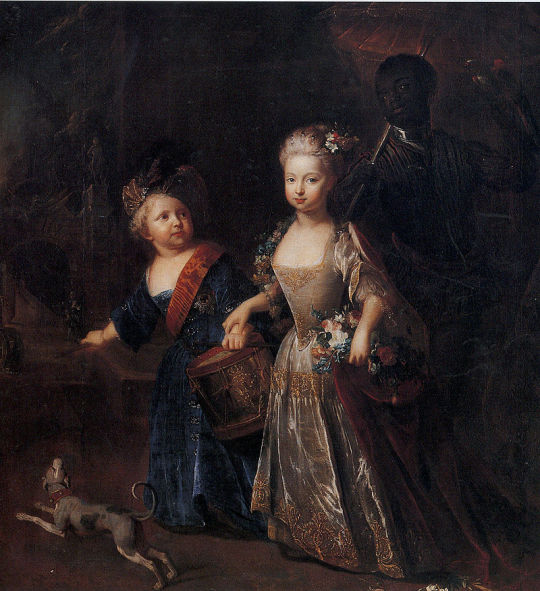
Anyway, as he got older he was taken to his father and that's when things got shitty. His father, Frederick William I, was the model image of toxic masculinity. He was all about power and military and expected his son to be the same. And since the boy was a lot more into music, poetry, and French stuff, his father often beat and humiliated him. He didn't allow him to learn French and Latin because, like, that's so gay. Now he was a real man. With a weird kink for tall guys. He is known for creating the Potsdam Giants, a regiment of very tall men that he didn't use for battle, just dressing them up and making them march. Ultimate straightness. It is probably redundant to say but his father also hated 'sodomy' and it was punishable by death, a law Frederick would repeal.
And the thing is, Frederick wasn't even supposed to become a king. He was the third son. It wasn't even disease. The first son died because a volley was fired close to his crib (because that’s the only way to wake up a real man - canon) and the second died at baptism because the royal crown crushed his skull. And you thought your parents were bad. Poor Frederick didn't even want to be a king, he just wanted to play the flute and do his thing. In a different age he'd be writing musicals on Broadway or something.
Anyway, there are few doubts among historians the man was gay. There's this BBC documentary that downplays it but it keeps saying he grew up in an environment where he was "leading a double life" and that he once wrote to a close friend that he felt he was a mirror that dared not be what nature made it, forced to oblige what was around it. Please.
Frederick's first presumed relationship was at 16, with Keith, the king's 17-year-old page. Unsurprisingly, Keith was soon sent to a far-off frontier. Right after that, however, Frederick got real close with an officer Hans Hermann von Katte. The dude was very woke and they both loved music and poetry but shit got very real very soon. In 1730, Katte and Frederick decided to flee to Britain to escape their despotic fathers. Sadly, they got caught and tried for treason. Although the prince was pardoned, Katte was sentenced to life imprisonment, which his sick dad changed to execution and then forced Frederick to watch it. At execution Katte and Fred shouted to each other endearments in French and before it happened, Frederick fainted. That shit really fucked him up and he got depressed but he toughened up and accepted his fate.
Aged about 20, Frederick was expected to marry. After a few failed attempts, an Austrian bride was selected, Elisabeth Christine of Brunswick-Bevern. Frederick was clearly unexcited and apparently even threatened suicide. As soon as he had secured throne, he sent her away and only met with her out of necessity. They had no children. And some historians are like, "well, they just didn't get along". Well, his folks hated each other but it didn't stop them from having 14 children.
Anyway, his father finally got off his back and as a crown prince, he mostly spent his time reading, composing, watching plays and writing woke political essays. Then his dad died so playtime was over.
Now that sounds like a story of a "weak" king. A man who loved to read books and play his flute. But it's not how it was. As Fred became king, he inherited a very militarized state with a huge-ass army and he worked with what he had. He started expanding Prussia, starting with Austria, which he had old beef with. He wasn't out for world conquest, he struck swiftly and strategically to consolidate and strengthen his state.
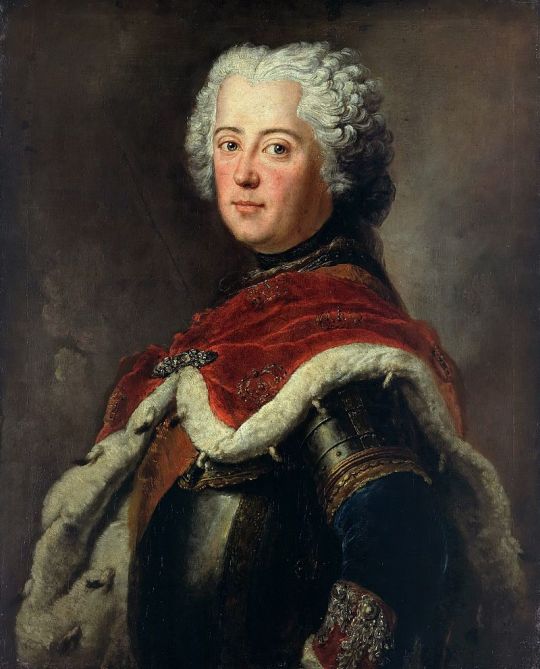
Frederick, widely known as Frederick the Great, waged war against much bigger armies with great success and doubled Prussia's size in his reign. Which is why Hitler was obsessed with the guy smh. Would make more sense if he was into the Frederick Senior, with his militarism and his little hobby of inbreeding giants and all. He must have missed the part where he was tolerant, modest and also gay.
Frederick also had a younger brother, Prince Henry, who was also gay. He was an important general in the king's army, though their relationship was quite complicated. Henry married but like his brother, bore no children, ignored his wife and spent time with fine lads.
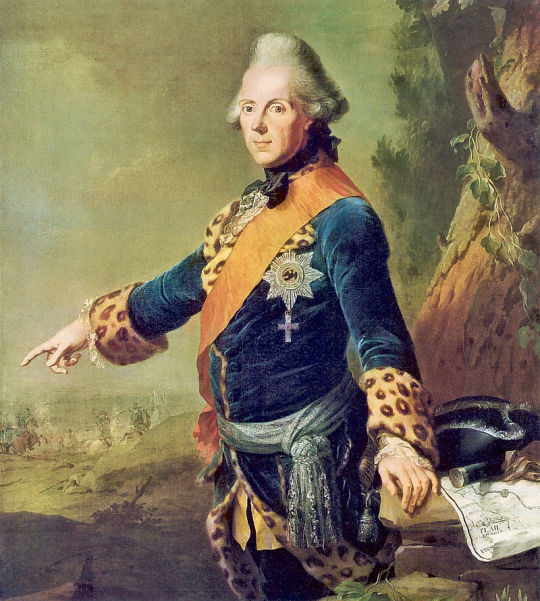
Look at this unapologetic legend!
When Frederick wasn't battling, he was doing lit stuff. He built a gorgeous palace in French fashion, full of Grecian sculptures and homoerotic paintings. He attracted the best intellectual minds of his time. Voltaire lived there for 3 years btw and he did not hold back to make many "wink wink" references to the king and his Grecian taste.
Speaking of which... One of his closest friends was Michael Gabriel Fredersdorf, an army private and a son of a peasant. Frederick met him as a prince and kept him by his side for the rest of his life, quite literally as he had an adjoined bedroom in his palace. He also made him a chancellor and gave him an estate, which really pissed off the elites.
Frederick is a complex character. Sure, he waged war and very successfully asserted himself as one of the top military leaders in history. But at the time Prussia was a scattered landlocked state, it couldn't just opt out of war so it's not like he could just go "peace out, bitches". But he did so much more. The guy actually believed that the king's duty was to be just and improve the lives of his people. He did some major reforms, improved education, supported art, and practiced religious tolerance, which was pretty woke at the time. He abolished torture and corporal punishment. He made governing more democratic by hiring people based on ability, not just status. Sadly, his cool legacy was utterly destroyed because the Nazi decided to appropriate him as their idol but lately it’s being reassessed. It’s hard to judge him considering how much he went through. But despite it all he became one of the best military commanders in history, one of the most woke and talented monarchs, and of course a legendary queer!
Disclaimer: I know all of these people did some terrible shit, at least by modern standards, but I'm here to have fun so I'm not going to go there now.
Sources:
medium.com/@LukeBoneham/the-politics-of-desire-...
thehistoryofparliament.wordpress.com/2019/02/21...
www.ranker.com/list/life-of-philippe-dorleans/m...
cour-de-france.fr/vie-quotidienne/sociabilite-e...
aelarsen.wordpress.com/2018/07/20/versailles-th...
thedrummersrevenge.wordpress.com/2007/06/22/ref...
dirtysexyhistory.com/2017/09/03/a-secret-gay-br...
unspeakablevice.tumblr.com/post/82525976110/lou...
journals.openedition.org/crcv/14427#ftn161
Marie Antoinette's World: Intrigue, Infidelity, and Adultery in Versailles
The Real Versailles - BBC Two
BBC Four - Frederick the Great and the Enigma of Prussia
https://medium.com/war-is-boring/historys-greatest-gay-general-fd7d1d311464
https://www.queerportraits.com/bio/frederick
https://www.spectator.com.au/2015/10/frederick-the-great-king-of-prussia-is-a-great-read/
http://gayinfluence.blogspot.com/2011/10/frederick-great-1712-1786.html
https://www.history.com/news/true-story-queen-anne-sarah-abigail-the-favourite-fact-check
#King James I#Duke of Buckingham#George Villiers#Philippe Duke of Orleans#Queer History#Chevalier de Lorraine#Queen Anne of England#Frederick the Great
106 notes
·
View notes